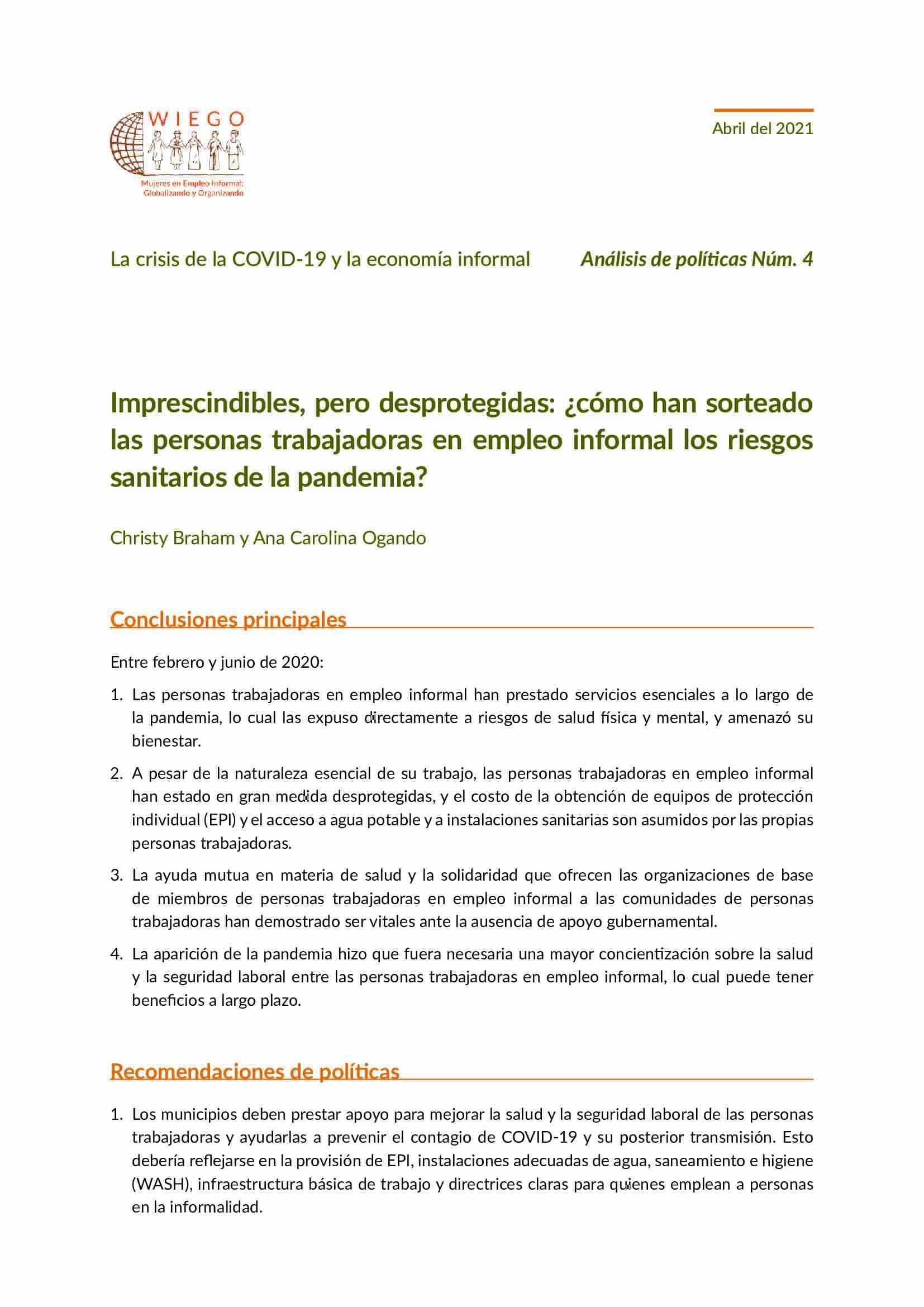Essential, But Unprotected: How Have Informal Workers Navigated the Health Risks of the Pandemic?
In this contribution to WIEGO’s Policy Insights series, we aim to explore the findings of a recent WIEGO study through a public health lens. More specifically, we consider the physical and mental health risks faced by informal workers, barriers to COVID-19 prevention, and good practices that can lead to improved health of informal workers across the globe.
Key Findings
Between February and June 2020:
1. Informal workers have delivered essential services throughout the pandemic, which directly exposed them to physical and mental health risks and threatened their welfare.
2. Despite the essential nature of their work, informal workers have been largely unprotected, with the costs of sourcing personal protective equipment (PPE) and accessing clean water and sanitation borne by workers themselves.
3. Health-related mutual aid and solidarity provided by membership-based organizations of informal workers to worker communities have proven vital in the absence of governmental support.
4. The onset of the pandemic necessitated an increased awareness of occupational health and safety among informal workers, which may have long-term benefits
View list of all: Research Reports

